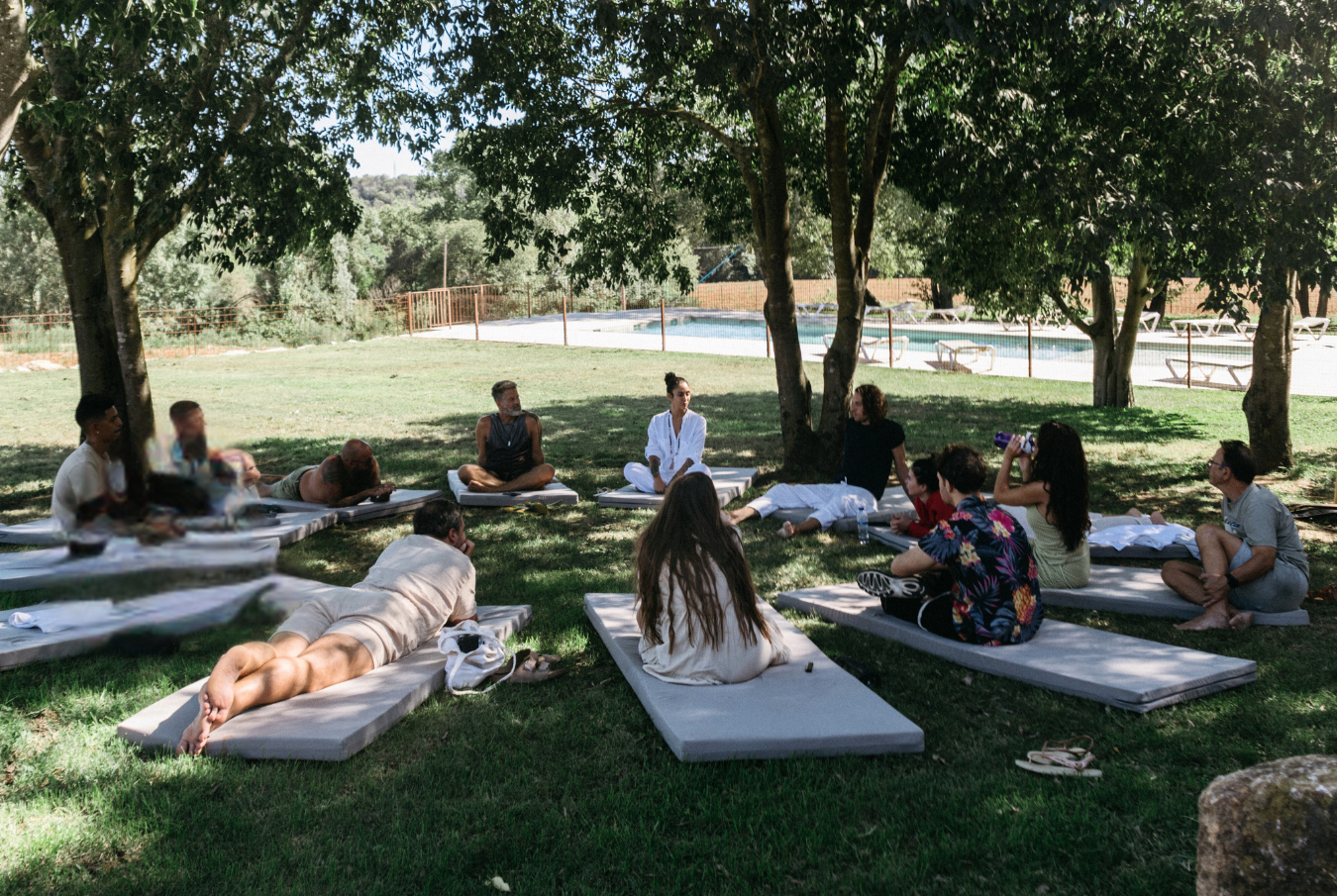Ayahuasca Group Sessions vs Private Sessions In this blog post we will discuss what is better, Ayahuasca group Sessions vs Private Sessions in Plant medicine retreats and Ayahuasca ceremonies. 🌿✨ Ayahuasca Group Sessions vs Private Sessions – Which Offers a Deeper Healing Experience? The decision to experience Ayahuasca alone or with others is rarely explored beyond personal preference. Yet it opens a deeper inquiry: What part of you is choosing? In today’s culture, healing is often seen as a solitary pursuit, an inner journey done in silence, behind closed doors. But this view, shaped by Western ideals of self-reliance, may unconsciously limit what plant medicine therapy can reveal. Privacy can feel safe, but it can also protect the very patterns we claim to want to dissolve. Choosing between a private Ayahuasca session and a group ceremony isn’t about better or worse. It’s about how you relate to being seen, not by a facilitator, but by life itself, mirrored through others. A group Ayahuasca experience challenges this illusion of isolation and invites us to remember: some truths are only activated in the presence of community. So before asking what’s more comfortable, it may be worth asking… what will stretch you into the version of yourself that you came here to meet? Understanding the Two Paths Private vs. Group Ayahuasca Sessions What is a Private Ayahuasca Session? Private Ayahuasca sessions are often chosen by those who fear judgment, feel emotionally overwhelmed in groups, or have unresolved trauma they prefer to explore in solitude. This one-on-one setting allows for deep personal attention and silence. However, this structure also risks becoming a comfortable echo chamber, where the ego feels safe enough to stay hidden. In avoiding the discomfort of others, we may also avoid the very triggers that reveal the most entrenched patterns. What is an Ayahuasca Group Ceremony? Group Ayahuasca sessions, often held with 10 to 15 people, mirror ancestral rites where community played a central role in healing. The presence of others isn’t merely coincidental — it’s integral. Emotions ripple across the room, activating unseen parts of ourselves. When someone cries, purges, or sings, it touches something archetypal within us. Group work can surface shame, comparison, or compassion — all of which become part of the ceremony. Why This Choice Matters Deeply The space in which you meet the medicine is not neutral — it’s a teacher in itself. Whether you choose solitude or shared experience, the setting will shape the mirror Ayahuasca holds up to your soul. Choose consciously, not comfortably. The Myth of Privacy: Why Healing is Not Always a Solo Journey In the modern world, we often equate privacy with safety and depth — believing that only in silence and solitude can we truly meet ourselves. This idea, while comforting, is a cultural illusion rooted in hyper-individualism. In the context of Ayahuasca healing ceremonies, privacy can become a veil that protects us not only from others, but from the very parts of ourselves we’re unwilling to confront. When we sit alone, we are less likely to be triggered. But in avoiding discomfort, we also bypass some of the most fertile ground for transformation. A group setting offers unexpected mirrors — subtle glances, sounds, or shared emotional releases that stir dormant truths within us. The presence of others creates friction, and friction reveals what’s unfinished inside. True healing isn’t always quiet or neat. Sometimes it’s messy, relational, and humbling. Sitting in ceremony with others allows us to see how we react, protect, compare, or contract. These are not distractions; they are the medicine before the medicine. Healing is not a performance we perfect in solitude — it’s a surrender we learn through relationship. The group becomes the teacher, just as much as the plant. Group Sessions: The Power of Collective Healing and Reflection Being Triggered as Medicine In group Ayahuasca sessions, it’s common to feel annoyed, intimidated, or emotionally stirred by others — especially strangers. But rather than being a problem, these triggers are invitations. Each emotional reaction points to a part of us still asking to be seen, healed, or integrated. The group amplifies these reflections, creating a living constellation of your inner world. What annoys you in others may be your own shadow asking for your attention. Resonance and Recognition: Seeing Yourself in Others There is a silent magic that happens when someone across the room begins to cry, purge, or speak their truth. Without words, their process resonates — not just emotionally, but spiritually. Their healing journey opens something in you. In this way, each participant becomes a doorway. We recognize our own pain, beauty, resistance, and courage through their expressions. It is not just witnessing — it is remembering. Strength in Shared Intention When a group gathers with a shared intention for healing and truth, a field of coherence is created — a collective force greater than the sum of its parts. This energetic container deepens the Ayahuasca experience, often leading to more profound journeys, enhanced safety, and stronger guidance from the medicine itself. Making Soul-Aligned Connections Beyond the ceremony, group retreats often lead to real connections. In the vulnerability of the experience, masks fall. You may find yourself surrounded by people who share your values, wounds, and longings. These connections can become allies, reminders, or even soul family. And sometimes, the medicine brings exactly who you need into your path — not by accident, but by design. When Private Ayahuasca Sessions Might Be Preferable While group Ayahuasca sessions offer a potent container for transformation, there are specific circumstances where a private setting may serve the process more effectively. Individuals with a history of severe trauma, PTSD, or psychiatric conditions may initially require a safer, more controlled environment before opening to the energetic complexity of a group. In such cases, privacy allows for careful pacing, uninterrupted silence, and deeper personal attention from facilitators. Private sessions may also be appropriate for those going through extremely delicate emotional processes that require focused guidance — such as navigating

